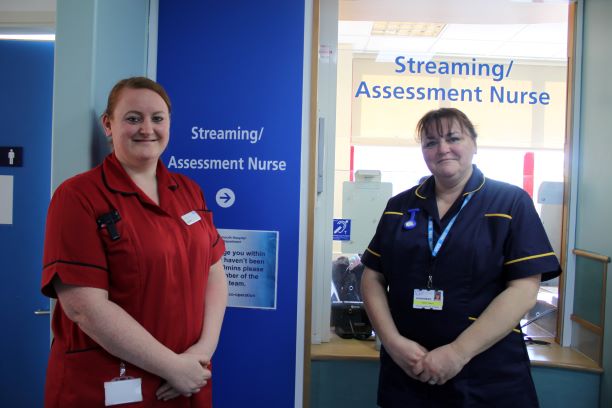A British hospital has unveiled the nation’s first hospital “bouncer” nurses to redirect non-urgent patients away from emergency rooms — and the initiative has already reduced waiting times dramatically.
The “gatekeeper” nursing staffers are stationed at the front door before receptionists
so they can immediately assess patients when they arrive. They can then decide if they are in genuine need of urgent care — and if not, the nurses can then redirect the patients to their pharmacies or general practitioners.
The initiative at the Royal Bournemouth Hospital is aimed at cutting waiting times for overstretched emergency room departments, and it has already made a dramatic difference.
Known as “clinical streaming”, the procedure is always carried out by a trained clinician. Furthermore, it operates under the strict policy that no one is sent home, only redirected to other professionals.
RELATED: Blue Light Reduces Blood Pressure, Just as Effectively as Medication – UK Study
Streaming nurse Deborah Thompson is waiting at the door to greet patients before they even get to the receptionist so she can ask a few basic questions and tell the patient where they should go.
“It has sped up times in the A&E because the doctors and nurses aren’t seeing the minor cases,” says Thompson. “People who come here with a sore throat or a chest infection thinking that they should attend an emergency department and clearly it’s not appropriate.”
Meanwhile in other parts of the country, the pressure on emergency departments is ramping up, says The Royal College of Emergency Medicine — and senior A&E doctors are warning that hospitals are teetering on the edge of safety.
Thompson added: “If we weren’t streaming, the department would be packed and there would be people sitting here for hours on end when they don’t need to be.”
Tracey Turley, another streaming assessment nurse practitioner in Bournemouth, said: “An ED streaming service is not a new concept, but it is one that the Trust has seen a great deal of benefit from.
“As an Advanced Nurse Practitioner, we are able to identify patients’ needs quickly and refer to the most appropriate service available. Providing this service ensures patient safety is paramount, and no patient will be sent away without a suitable clinical pathway.”
Leanne Aggas, who is an emergency department matron, added: “It is important to bear in mind however that A&E is not an alternative to a GP appointment. If your GP is closed, you can call 111 which will direct you to the best local service.”
Pass On The Positivity By Sharing The Good News With Your Friends On Social Media





















Well done to the NHS. I hope the idea catches on!
A&E departments are really under a lot of pressure. By having Nurse Practitioners on hand to re-direct people if necessary – in time it will hopefully educate people properly as to what is classified as an emergency and what is not, what can be treated by a GP/Pharmacist or self-treat.
I have found dialling 111 very useful too after GP closing times. E.g. Getting bitten by a field mouse – staff manning the 111 line directed me to an out of hours surgery for a tetanus injection. Another time they advised me to go to hospital – when I described a large deep cut I had sustained – it did need stitches, not just a plaster to hold it together.
Good luck NHS.